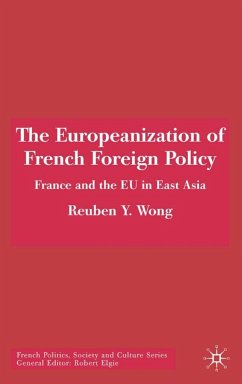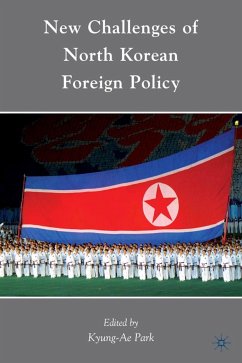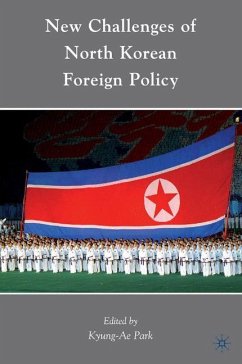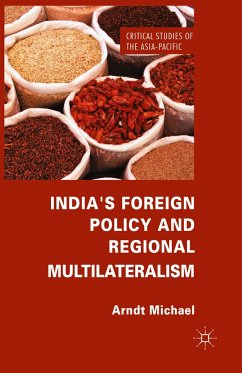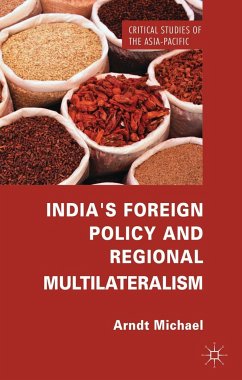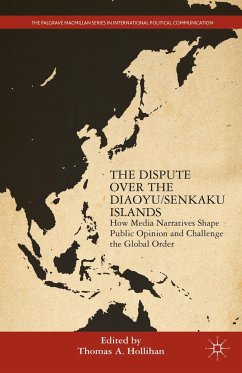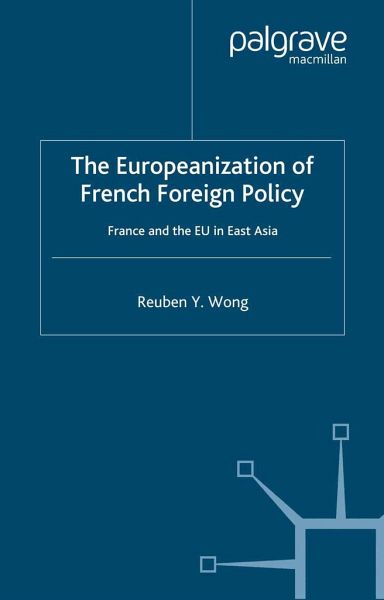
The Europeanization of French Foreign Policy
France and the EU in East Asia
Versandkostenfrei!
Versandfertig in 6-10 Tagen
38,99 €
inkl. MwSt.
Weitere Ausgaben:

PAYBACK Punkte
19 °P sammeln!
This study examines the record of French and EU interactions with China, Japan and Vietnam in the areas of economic exchanges, political security relations and human rights to establish if there has been a trend of converging 'European' politics and collective European conceptions of interest and identity. It argues that the utility and impact of EU institutions on French foreign policy behaviour is more significant than is commonly imagined or admitted, and that foreign policies of EU member states tend over the long term towards convergence.





